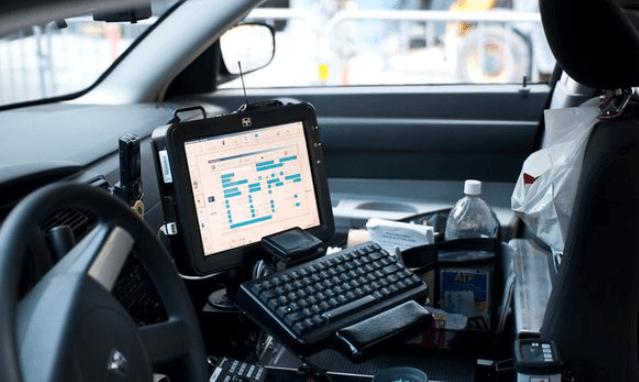When a Cop Runs Your Plates What Comes up

In today’s modern world, where technology and information are readily accessible, it is no surprise that law enforcement officers have a powerful tool at their disposal – the ability to run license plates. When a cop runs your plates, a wealth of information is instantly retrieved, painting a detailed picture of the vehicle and its owner. You can also use QR codes to get information quicker.
From basic vehicle details to ownership information, this process provides law enforcement with valuable insights that aid in their daily duties. However, what exactly comes up when a cop runs your plates? What are the implications for the individual behind the wheel?
Brace yourself, for the answers may not be as straightforward as one might think.
Vehicle Information
When a police officer runs your license plate, they are able to access a wealth of vehicle information. This includes details about the registration process and the vehicle’s history.
The registration process involves submitting necessary documents and paying fees to legally establish ownership of a vehicle.
Vehicle history refers to a comprehensive record of the vehicle’s past, including any accidents, maintenance records, and previous ownership.
This information helps law enforcement officers in their investigations and ensures the safety and security of the public.
Owner Details
The owner details of a vehicle can be accessed by a police officer when running a license plate. This allows them to obtain information such as the name, address, and contact details of the registered owner.
Additionally, the officer can also access the vehicle registration details, including the make, model, and year of the vehicle.
However, it’s important to note that running license plates does not provide access to the owner’s driving history or any other personal records.
Law Enforcement Alerts
Law enforcement alerts are notifications generated from the police database when a license plate is run by officers, providing them with crucial information. These alerts can include details such as stolen vehicles, outstanding warrants, or other potential threats.
While they serve as a valuable tool in law enforcement, privacy concerns have been raised regarding the access and use of personal information. Striking a balance between public safety and individual privacy rights remains a challenge.
Conclusion
In conclusion, when a police officer runs your vehicle plates, various information is displayed. This includes details about the vehicle such as make, model, and registration status. Additionally, the owner’s information such as name, address, and driver’s license status may be available.
Furthermore, the system may also alert law enforcement if the vehicle is associated with any outstanding warrants or reported stolen. Hence, this process provides law enforcement with valuable information to ensure public safety and enforce the law.





